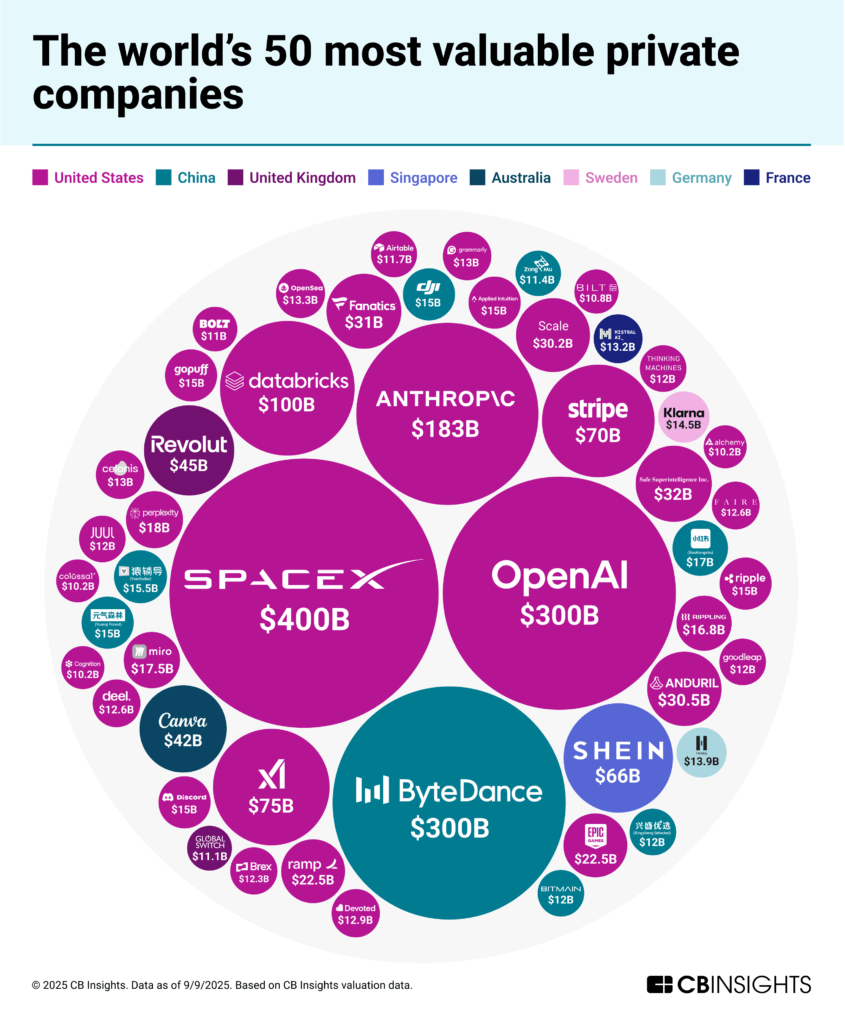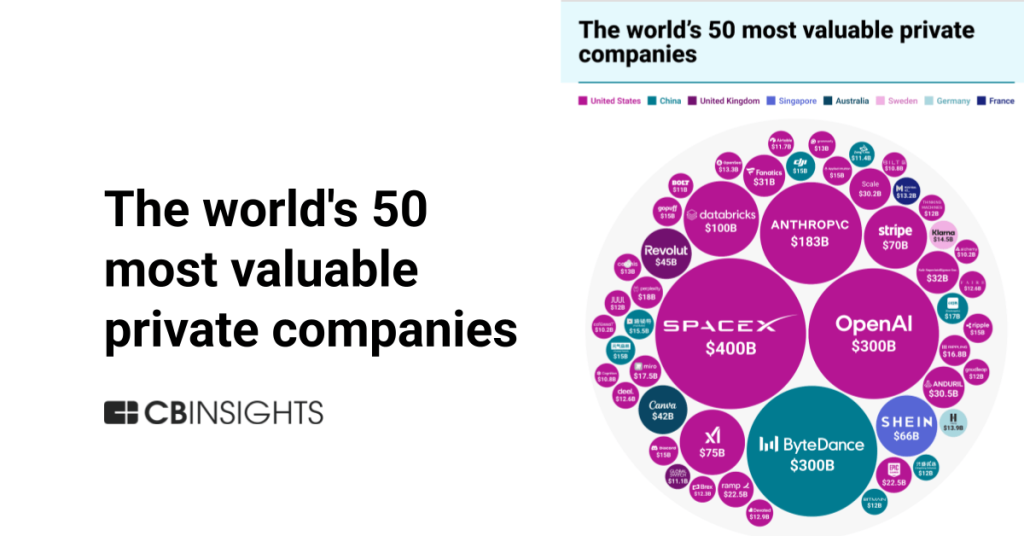The venture landscape is more concentrated than ever, with AI companies and 2 countries defining the world’s most valuable startups.
Among the top 50 private companies globally, the US and China account for 86% of the list, while AI startups represent 40%. These companies are reshaping industries and, in some cases, surpassing their public market competitors in valuation.
OpenAI is reportedly poised to hit a roughly $500B valuation — putting it closer to the ranks of big tech than any other startup. At the same time, the current top 50 companies’ combined valuation represents under half of Nvidia’s current market cap of $4.3T, underscoring the relative scale of public tech giants.
Using CB Insights data, we analyzed the top 50 most valuable private companies globally to identify where value creation is happening in private markets. Below are the key patterns emerging from the group.

![]() Track all 1,200+ unicorns
Track all 1,200+ unicorns
Key takeaways
The United States and China dominate the global unicorn landscape, representing 86% of the top 50 companies. The US leads with 35 companies (70%), while China contributes 8 companies (16%), showing how concentrated tech innovation and capital formation remains within these two tech regions. The remaining 6 countries — Australia, France, Germany, Singapore, Sweden and the UK — each have only 1-2 representing companies.
AI companies represent 40% of the top 50, signaling the market’s confidence in AI as a primary driver of economic value. These companies range from the big names building foundation models like OpenAI and Anthropic to specialized players tackling applications like defense systems (Helsing, Anduril).
Abundant private funding enables companies to delay going public while continuing to scale. Today, startups are going public an average of 16 years after being founded, 4 years later than just a decade ago. Databricks recently surpassed its public competitor Snowflake in valuation ($100B) at its recent $1B Series K round. Meanwhile, ByteDance ($300B valuation), generated more revenue than Meta in Q1’25 while staying private. With plenty of private capital available and employees able to sell shares on secondary markets, companies can grow much larger without going public.
Secondary transactions are increasingly driving valuations, with 7 consecutive quarters of YoY growth in transaction activity among VC-backed companies. Recent secondary sales at companies like Canva (valued at $42B, up from $32B in 2024), Revolut (valued at $75B, up from $45B), and OpenAI’s upcoming $10.3B secondary sale at a rumored $500B valuation demonstrate this trend. As startups stay private for longer, secondary sales are providing both liquidity and fresh valuations.
For information on reprint rights or other inquiries, please contact reprints@cbinsights.com.
If you aren’t already a client, sign up for a free trial to learn more about our platform.

